Understanding Farts
- Understanding Farts
- What is a Fart? – Defining and Understanding the Basics
- The Composition of Farts – What Are They Made Of?
- Why Do We Fart? – The Biological Reasons
- Cultural and Social Aspects of Farting – How Different Societies View Farting
- Managing Farts – Tips and Tricks for Dealing with Flatulence
- Understanding Farts: Conclusion
- Understanding Farts FAQs
Farting is a natural and essential bodily function. People often find it embarrassing or funny. This article, “Understanding Farts” aims to demystify flatulence. It is often misunderstood. Farting, also called passing gas, is a universal experience. People of all ages and backgrounds share it. But what exactly is a fart? Why does it occur, and what does it say about our health? We’ll explore these questions by diving into the science behind farting. We’ll examine its composition and understand the biological reasons for its occurrence. Additionally, we’ll look at how different cultures perceive farting. We’ll also provide practical advice on managing flatulence in daily life. This article offers a comprehensive exploration of farts accessible to everyone.
What is a Fart? – Understanding Farts
Farting, also known as flatulence, is the act of releasing gas from the digestive system through the rectum. This gas is a byproduct of the digestive process. It’s a combination of swallowed air and the gases produced by the breakdown of food in the stomach and intestines.
The Origin of Fart Gas
The journey of a fart begins in the stomach and intestines. As we consume food and drink, we also swallow air, which contains oxygen and nitrogen. The digestive process involves stomach acids breaking down food. Intestinal bacteria also help. This happens simultaneously. This breakdown produces various gases, including hydrogen, methane, and carbon dioxide. The composition of fart gas varies among individuals, depending on their diet and the unique mix of bacteria in their intestines.
The Sound and Smell of Farts
The sound associated with farting is caused by the vibrations of the rectal opening. The vibrations happen as gas is expelled. Several factors determine the volume and pitch of a fart. These factors include the amount of gas, the force of expulsion, and the tightness of the sphincter muscles.
The smell of farts, often the source of embarrassment, is due to trace gases like hydrogen sulfide. Bacteria in the intestines produce hydrogen sulfide when breaking down sulfur-rich foods. These foods include meats, eggs, and certain vegetables.
Frequency and Volume of Farting
On average, a person farts between 5 to 15 times a day. The volume of gas produced varies widely, depending on dietary habits and other factors. Some foods, like beans, cabbage, and carbonated drinks, are known to increase gas production.
Farting and Health
Farting is a normal part of the digestive process and a sign of an active, healthy digestive system. However, excessive farting might indicate dietary issues or health problems. This is especially true if it’s accompanied by discomfort or changes in bowel habits. You should discuss this with a healthcare professional.
The Composition of Farts – What Are They Made Of?
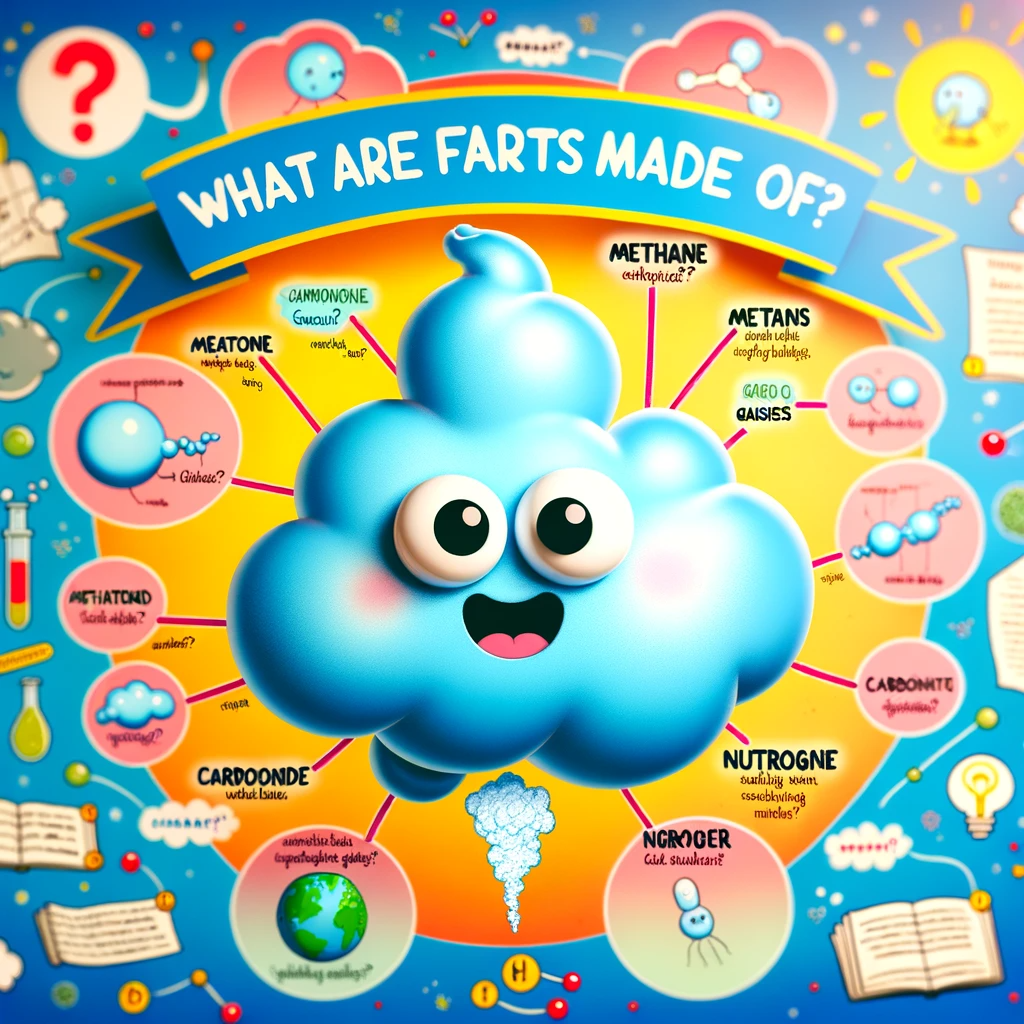
Have you ever wondered what farts are made of? Farts might seem funny, but they’re actually a mix of different gases that come from our stomach and intestines.
A Mix of Gases
When we eat and drink, we also swallow air. This air has oxygen and nitrogen in it. Plus, our stomach and intestines break down the food with the help of tiny bacteria. This process makes more gases like hydrogen, methane, and carbon dioxide. Each person’s fart is different because everyone’s body and the bacteria in their guts are unique.
Not Just Air!
Even though farts are mostly made of odorless gases, they sometimes smell funny. This is because of tiny amounts of other gases, like hydrogen sulfide. Foods with a lot of sulfur, like eggs, meat, and some veggies, can make farts smell stronger.
Farting is Normal
Everyone farts, usually 5 to 15 times a day! The amount of gas we make depends on what we eat and other things about our bodies. Some foods, like beans and fizzy drinks, can make us produce more gas.
Farts and Your Health
Farting is a normal part of how our bodies work. It’s a sign that our stomach and intestines are doing their job. If someone farts a lot or it hurts when they fart, it’s a good idea to talk to a doctor, as it might be a sign of something that needs to be checked.
Why Do We Fart? – The Biological Reasons
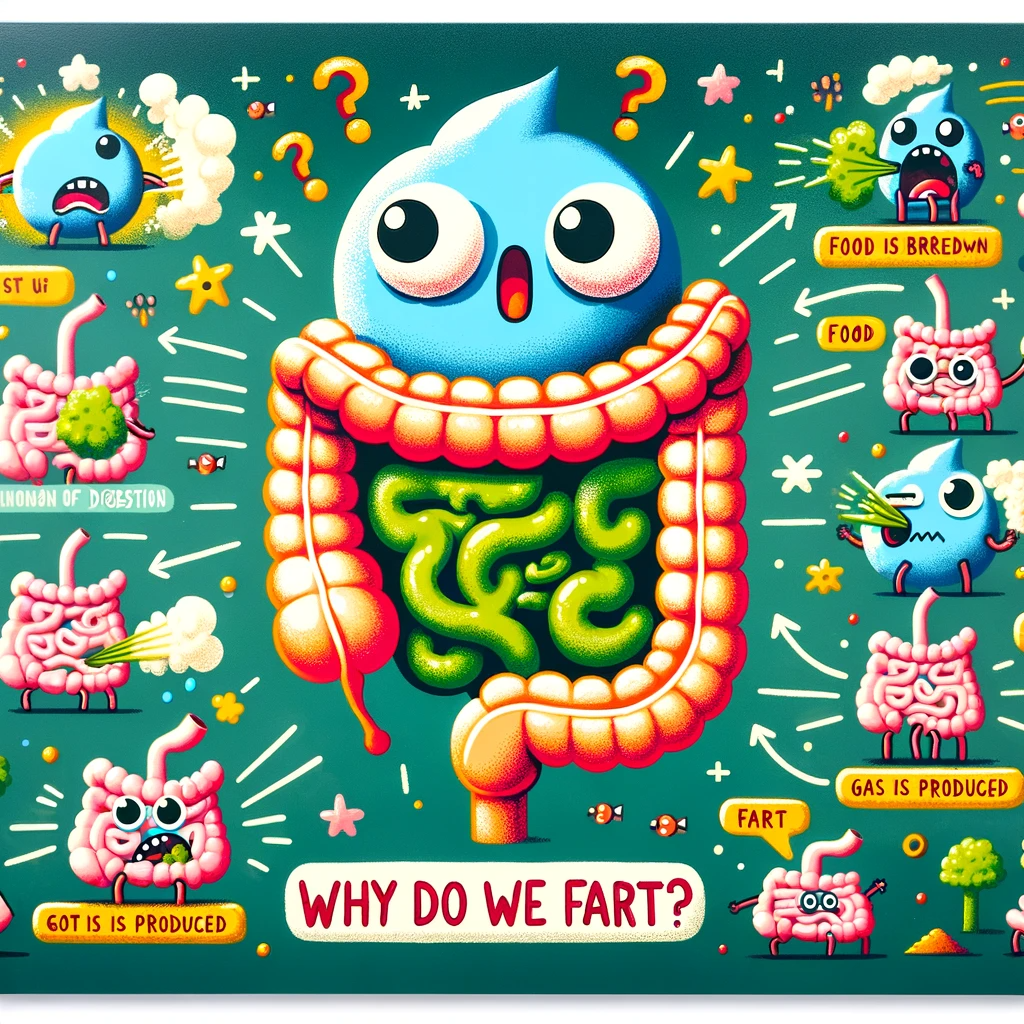
Farting might seem funny. However, it’s an important sign that our bodies are working properly. Let’s find out why our bodies need to fart.
Digestion Leads to Gas
When we eat, our stomach and intestines get to work. They break down the food into tiny pieces our bodies can use. This process also makes gas. Foods like fruits, vegetables, and grains can create more gas. They have a type of sugar that our bodies don’t fully break down.
Air Swallowing
We also make gas by swallowing air when we eat or drink. This is why sometimes we burp or fart more when we drink fizzy drinks or eat too fast.
Gas Needs to Go Somewhere
Our bodies are smart! When there’s extra gas in our stomach and intestines, our body needs to get rid of it. If it stays inside, it can make us feel bloated and uncomfortable. So, our body lets the gas out as a fart.
Everyone Farts
Farting is completely normal. Animals fart too! It’s a natural part of how our bodies work. Sometimes, if we’re nervous or not feeling well, we might fart more. And that’s okay!
When to Talk to a Doctor
If farting hurts or if someone farts a lot more than usual, it’s a good idea to talk to a doctor. It could be a sign that something in our diet or our bodies needs a little help.
Cultural and Social Aspects of Farting – How Different Societies View Farting
Everyone farts. People have different views on farting across the world. Let’s explore how different cultures and societies view farting.
Farting Around the World
In some places, farting is seen as something funny and natural. People might laugh or make jokes about it. In other cultures, farting in public is considered rude, and people try to avoid it.
Farting in History
Long ago, some cultures thought farting was a sign of good health and even celebrated it. For example, in ancient Japan, there were farting competitions! In other places, like ancient Rome, people would say “Good health to you” when someone farted.
Farting in Stories and Jokes
Fart jokes have been around for a long time. Even famous writers like Shakespeare included them in their plays. Farting is often used in stories and movies to make people laugh.
Learning Good Manners
Many of us learn as kids that it’s polite to say “excuse me” after farting, especially around others. This is part of learning good manners.
Being Kind and Understanding
It’s important to remember that farting is normal and natural. We should be kind and understanding if someone farts, especially if it’s an accident.
Managing Farts – Tips and Tricks for Dealing with Flatulence
Farting is natural. However, there are times we might want to manage it better, especially in social situations. Here are some tips and tricks for dealing with farts.
Some foods make us fart more than others. Foods like beans, broccoli, and carbonated drinks can increase gas. If you notice certain foods make you fart a lot, you can try eating less of them.
Eating Slowly
Eating too fast can make you swallow more air, which can lead to more farting. Try to eat slowly and chew your food well.
Watching What We Eat
Staying Active
Staying active can help your digestive system work better. It can also reduce farting. Simple activities like walking can be really helpful.
Over-the-Counter Remedies
If farting is bothering you a lot, there are some medicines you can buy that might help. Always ask a parent or guardian before taking any medicine.
Talking to a Doctor
If you have a lot of pain when you fart or if you’re farting much more than usual, it’s a good idea to talk to a doctor. They can help figure out if there’s something in your diet or body that needs attention.
Understanding Farts: Conclusion
Understanding farts is not just about giggles and funny noises; it’s a way to learn about our bodies. We’ve seen that farting is a natural part of digestion, caused by the food we eat and the air we swallow. Different cultures have different views on farting, but it’s something everyone does. We also learned how to manage farts, especially when we’re around others.
Remember, farting is a normal, healthy part of life. It’s okay to laugh about it, but it’s also important to be respectful and kind to others. If you ever have worries about farting, like if it hurts or happens too much, talking to a doctor is a good idea. They can help you understand your body better. So, the next time you or someone else farts, remember what you learned and maybe even share a fun fact about it!

Understanding Farts FAQs
A fart is caused by gas in the digestive system, which is a mix of swallowed air and gases produced by the breakdown of food.
Farts can smell due to small amounts of sulfur-containing gases, produced when certain foods are digested.
Yes, it’s normal. People typically fart 5 to 15 times a day.
Absolutely. Foods like beans, broccoli, and carbonated drinks can increase gas production.
Yes, farting is a sign of a healthy digestive system. However, excessive farting or pain when farting can be a sign to consult a doctor.
Eating slowly, choosing less gassy foods, staying active, and over-the-counter remedies can help manage farting.
Most animals do fart, as it’s a natural part of digestion.
The sound of a fart is caused by vibrations of the rectum as the gas is expelled.
Occasionally holding in a fart isn’t harmful, but regularly doing so can cause discomfort and bloating.
Yes, cultural attitudes towards farting vary globally, with some cultures finding it humorous and others considering it impolite.

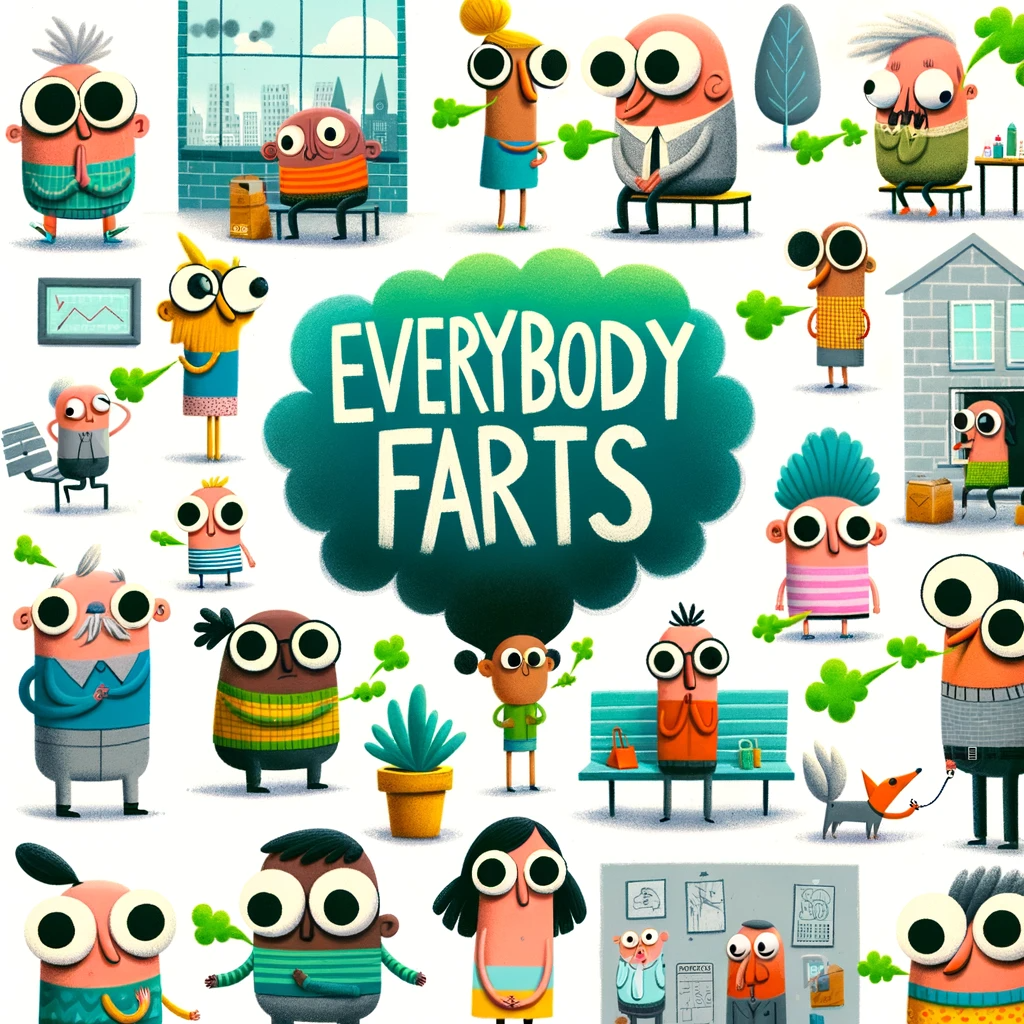
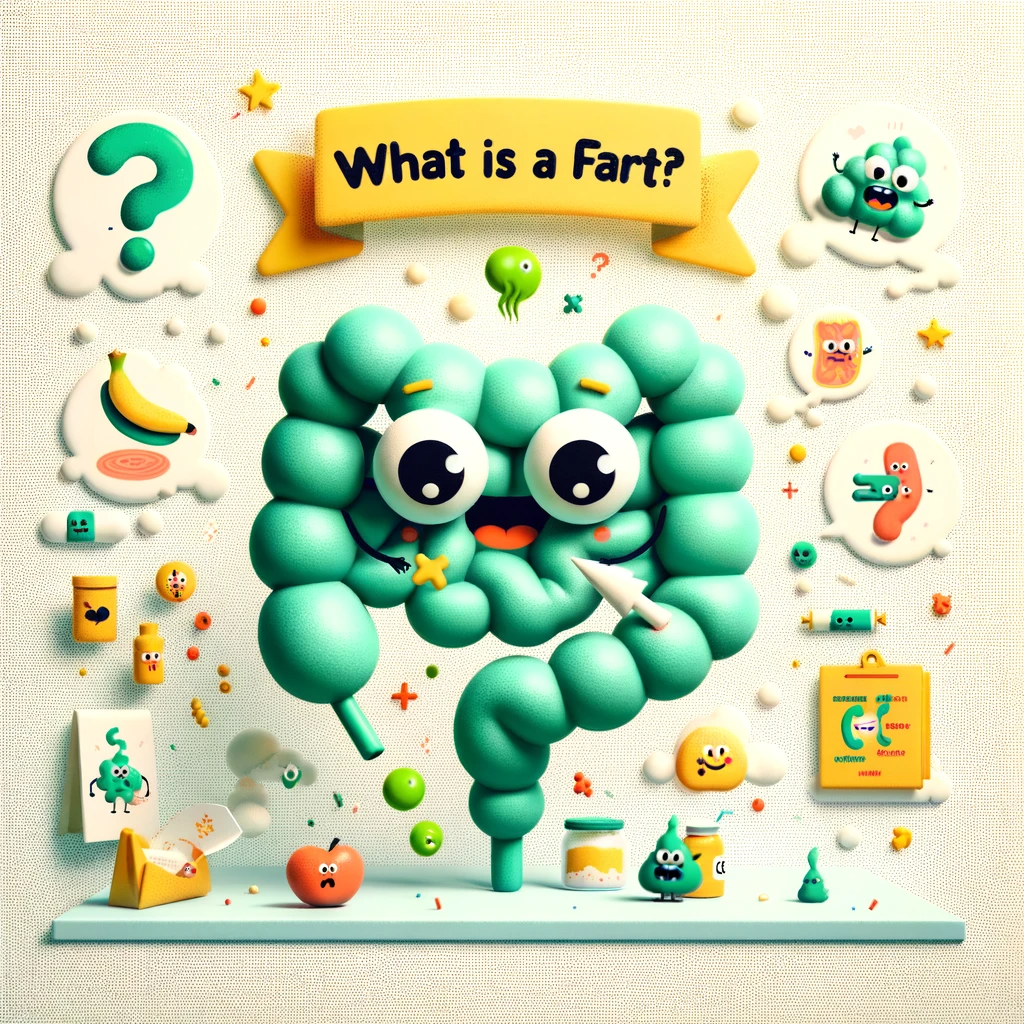

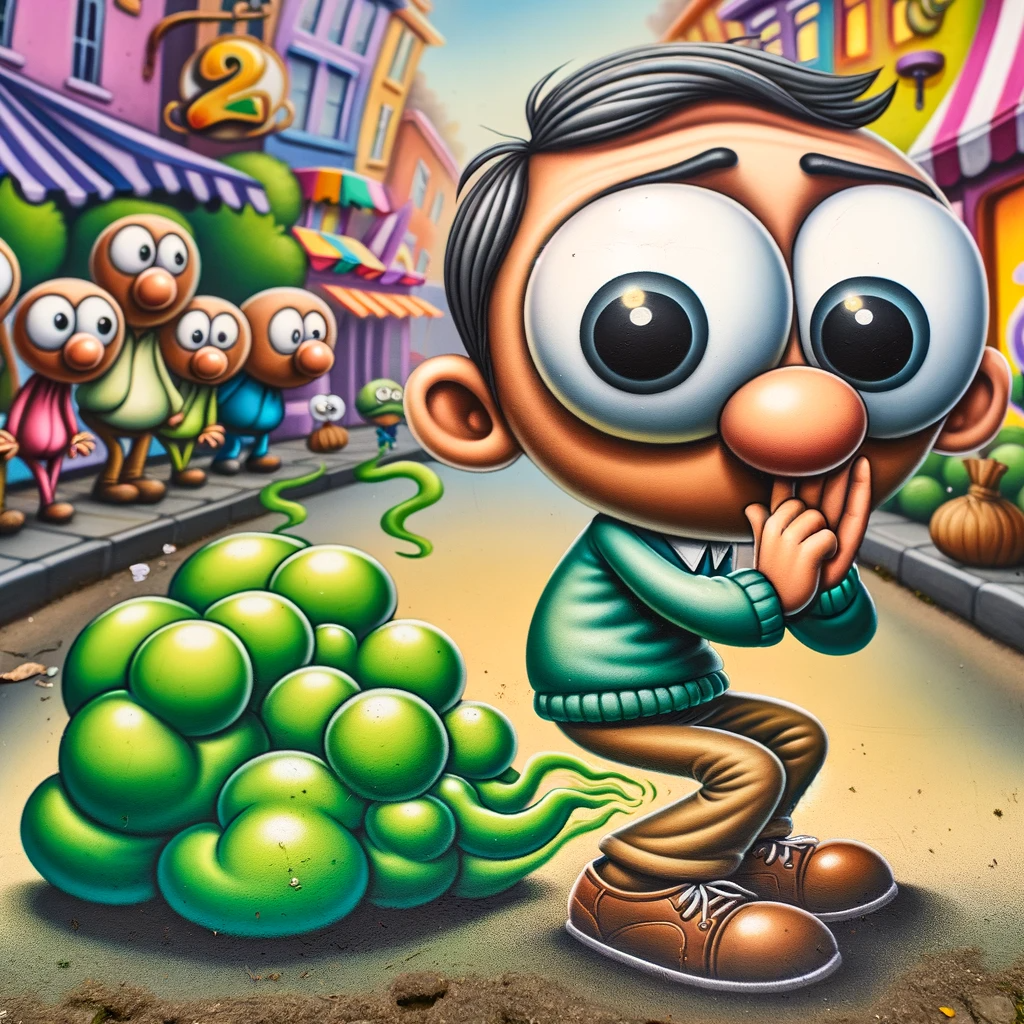
Leave A Comment